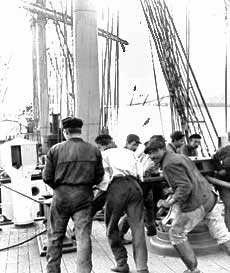Indians in the Making: Seriously?
Anjelica Freeman
Indians in the Making: Ethnic Relations
And Indian Identities Around Puget Sound
By Alexandra Harmon
Rough Draft
April 25, 2007
Indians in the Making: Seriously?
According to Alexandra Harmon, history has been written all wrong, who knew that “the marks and meanings of Indian identity have evolved through decades of negotiation between supposed races” (Harmon, 4), I always thought that it was forced, coerced, stolen or a myriad of other not so diplomatic terms. Harmon has a remarkably skewed version of trade relations, this is obvious when she references innocently that it was “etiquette differences” (Harmon, 17) among other new, but harmless disparities that made it a little more work to trade with the “King George men”, but apparently the Natives conveniently became capitalists as soon as the trade ships hit their shores because the value of money was very important to them, not…?!
“The prospect of advantageous trade gave native people and Britons alike such a strong incentive for peaceful relations that they devoted considerable effort to averting conflict” (Harmon, 24). You have got to be joking, nobody was looking to avoid conflict not to mention devoting considerable effort to it.
“No doubt some laborers had briefer sexual encounters that no one recorded, including exploitative ones” (Harmon, 31) I didn’t know that their was a more neutral or nice way of referring to rape.
“The evolving rituals of the Puget Sound fur trade were in effect a diplomatic protocol that made regular relations between dissimilar peoples possible” (Harmon, 42), no doubt that trade was an incentive for less pillaging, but it wasn’t this romantic.
“People could approach each other without renouncing their own distinctive habits and values” (Harmon, 34), this is so ridiculous, converting people was all about people renouncing their own values and habits, this is so ridiculous.

